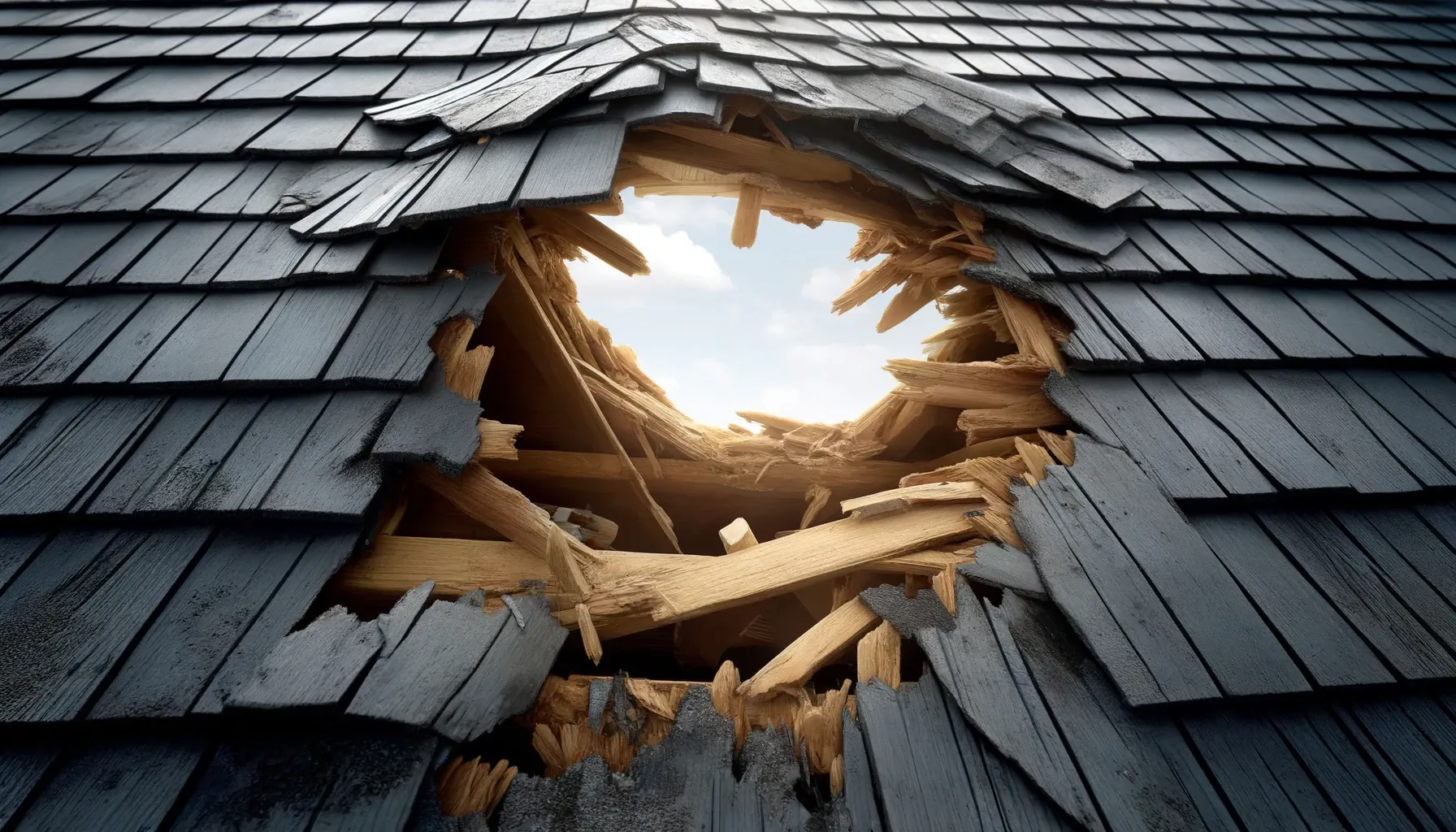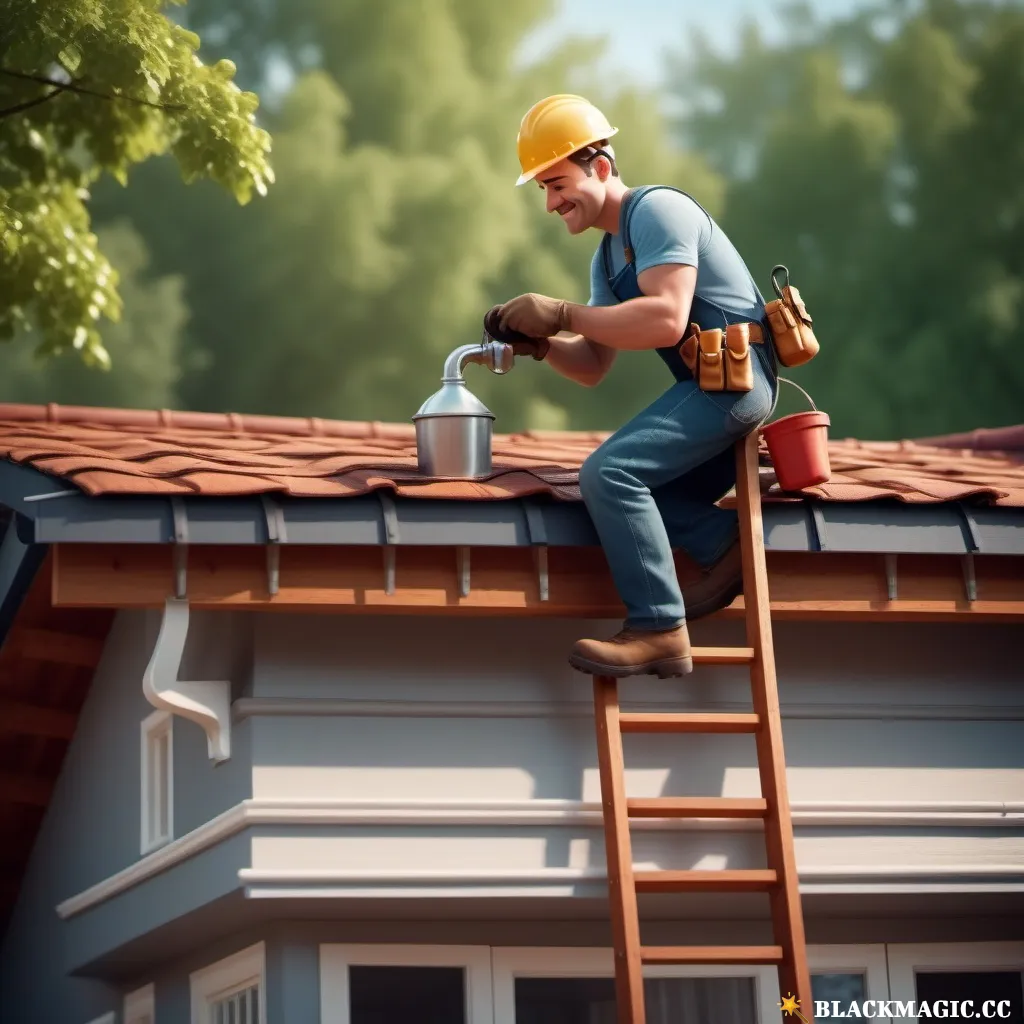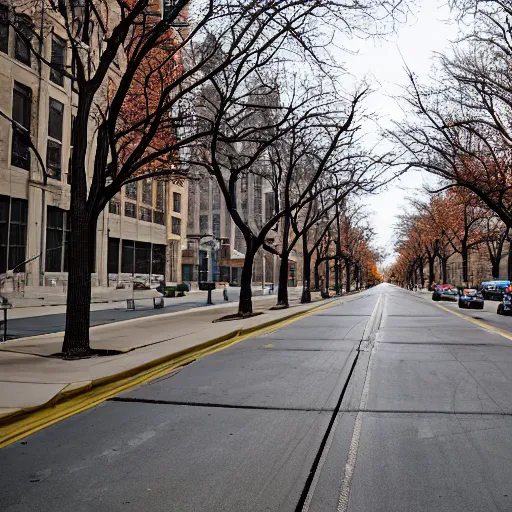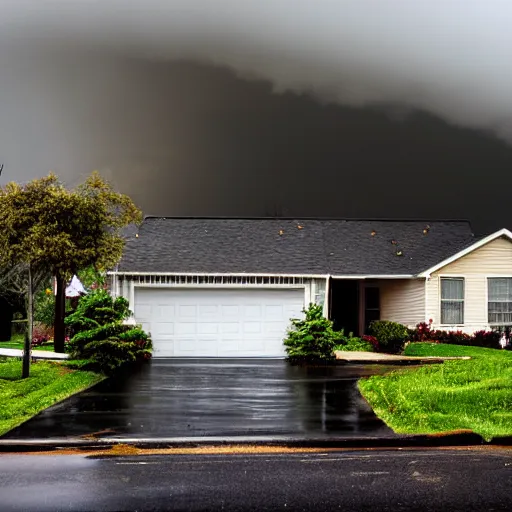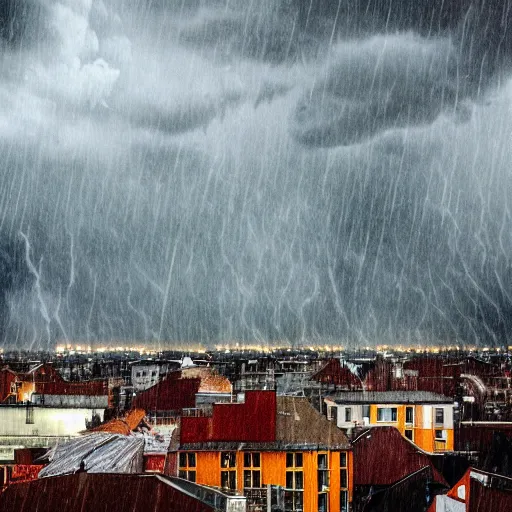Can a Roof Leak Stop on its Own?
So, you're staring up at your leaky roof, wondering if it has some sort of magical ability to fix itself. Well, my friend, I hate to break it to you, but unfortunately, Mother Nature didn't bless roofs with a built-in plumbing system.
No, a roof leak cannot just decide to pack up its bags and go on vacation, leaving you with a dry and problem-free home. If only it were that easy! Let's dive into the world of roof leaks and explore why they need a little more than wishful thinking to disappear.
Understanding Roof Leaks
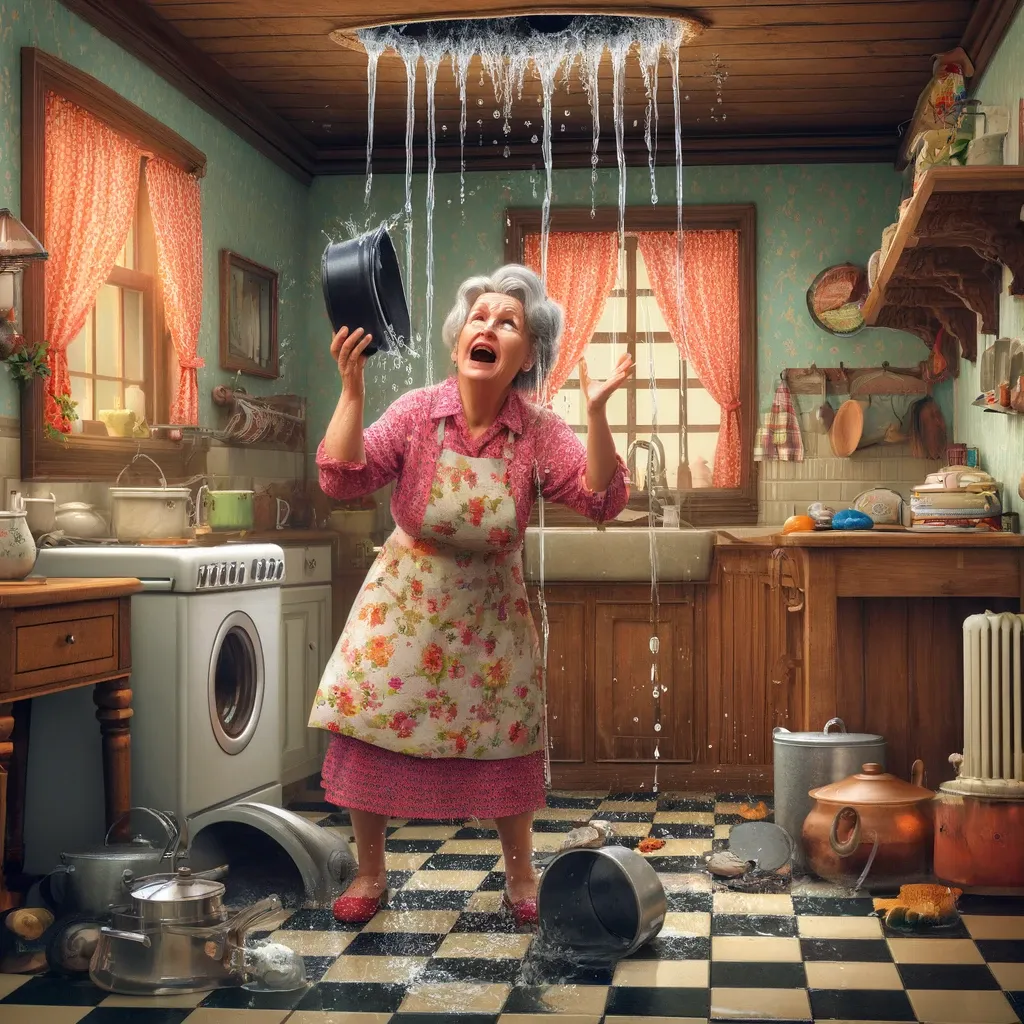
What is a roof leak?
A roof leak is a common household problem that occurs when water enters your home through gaps, cracks, or damaged areas in your roof. It can range from a small, inconspicuous drip to a major downpour that can cause extensive damage if not addressed promptly.
Common causes of roof leaks
Roof leaks can be the result of various factors. One of the primary causes is faulty or improperly installed roofing materials. This can include shingles that have become loose or damaged, flashing that has deteriorated, or improper sealing around vents and chimneys. Other causes can include clogged gutters, ice dams, and even physical damage from storms or falling branches.
Signs of a roof leak
Detecting a roof leak early is essential to prevent further damage. Look out for signs such as water stains or discoloration on your ceilings or walls, peeling paint or wallpaper, dampness in your attic, or even a musty odor. Don't dismiss small water stains, as they could indicate a more significant problem that requires immediate attention.
Factors that Determine Self-Stoppage
Severity of the leak
The severity of a roof leak can play a role in whether it will stop on its own. A minor leak caused by a small crack or a loose shingle has a higher chance of naturally stopping compared to a larger, more severe leak. However, it is always advisable to take action and not rely solely on the leak stopping on its own.
Weather conditions
Weather conditions can influence a leak's self-stoppage. If you're experiencing heavy rain or snowfall, the amount of water entering through the leak may increase.
Wind can also exacerbate the situation by blowing rainwater into the leak and causing it to continue. So, unfortunately, hoping for sunny days to fix your roof leak may not be the most effective strategy.
Roofing material
The type and quality of your roofing material can impact the self-stoppage of a leak. Certain materials, like metal or clay tiles, may be more resistant to water penetration and could potentially slow or stop a leak. However, this is not a foolproof solution, and it's still crucial to address the issue as soon as possible to prevent further damage.
Age and condition of the roof
An older roof that is already showing signs of wear and tear is more likely to develop leaks. In such cases, the self-stoppage of a leak becomes even less likely. The older the roof, the more urgent it is to take immediate action and not rely on the leak stopping on its own.
Effects of Ignoring a Roof Leak
Structural damage
Ignoring a roof leak can lead to severe structural damage to your home. Water seeping into your walls, ceilings, and foundation can weaken the structure and compromise the stability of your house. Over time, this can lead to rot, decay, and even collapse in extreme cases. So, don't wait for the leak to stop on its own; act now to protect your home.
Mold and mildew growth
A roof leak provides a perfect breeding ground for mold and mildew. These fungi thrive in damp environments and can spread rapidly once they take hold. Not only can mold and mildew cause unpleasant odors and discoloration, but they can also pose health risks to you and your family. Don't allow the leak to create a cozy home for these unwanted visitors; address the problem promptly.
Health risks
The presence of mold and mildew from a neglected roof leak can heighten the risk of respiratory issues, allergies, and other health problems. Prolonged exposure to mold spores can irritate the lungs and exacerbate existing respiratory conditions, such as asthma. Taking immediate action to repair the leak is vital for safeguarding your family's health.
Increased repair costs
Ignoring a roof leak may initially seem like a cost-saving measure, but in reality, it can lead to more significant expenses down the road. The longer a leak persists, the more damage it can cause to your home's interior and structure.
What may have been a minor repair could turn into a major renovation or even a full roof replacement, resulting in substantial financial burden. So, don't let a small leak become a big headache; address it promptly.
Temporary Fixes for a Roof Leak
Using roofing cement or sealant
In urgent situations, you can temporarily stop a roof leak by applying roofing cement or sealant to the affected area. This can help to create a temporary barrier that prevents water from entering your home.
However, keep in mind that this is just a short-term solution and should not be relied upon as a permanent fix. It's crucial to consult a professional roofer to assess the extent of the damage and provide a long-term solution.
Applying a tarp or plastic sheet
Another temporary fix for a roof leak is to cover the affected area with a tarp or plastic sheet. This can act as a barrier against rainwater until you can address the issue properly.
However, it's important to secure the tarp or plastic sheet tightly to prevent it from being blown away by strong winds. Again, while this can buy you some time, it's essential to seek professional assistance to permanently fix the problem.
Clearing debris from gutters
Clogged gutters can contribute to roof leaks by causing water to overflow and seep into your home. Therefore, one temporary solution you can implement is to clear any debris from your gutters and downspouts. By ensuring that water can flow freely, you can mitigate the risk of leaks caused by blockages. However, this is only a temporary fix and should not replace proper gutter maintenance and repair.
Professional Solutions for Roof Leaks
Roof repair
For minor roof leaks, professional roof repair can be an effective solution. A skilled roofer will assess the extent of the damage, identify the cause of the leak, and apply the necessary repairs. This may involve replacing damaged shingles, sealing cracks and gaps, or reinforcing flashing. Roof repair can offer a cost-effective and efficient solution to address the leak and prevent further damage to your home.
Roof replacement
In cases where the roof is significantly damaged or has reached the end of its lifespan, a roof replacement may be necessary. While this is a more substantial investment, it provides the opportunity to install a new, durable roof that will protect your home for years to come.
A professional roofer can guide you through the selection process and ensure that your new roof is installed correctly, preventing future leaks.
Gutter repair or replacement
Roof leaks can also be caused by compromised gutters or downspouts. If your gutters are damaged, clogged, or improperly installed, they can contribute to water seepage into your home. A professional can assess the condition of your gutters and recommend repairs or replacements as needed. Ensuring that your gutters are functioning properly is essential for preventing future roof leaks.
Preventing Future Roof Leaks
Regular roof inspections
Regular roof inspections are crucial for detecting and addressing potential issues before they turn into major leaks. A professional roofer can conduct a thorough inspection, identifying any signs of damage, wear and tear, or areas of concern. Timely repairs and maintenance can extend the life of your roof and minimize the risk of leaks.
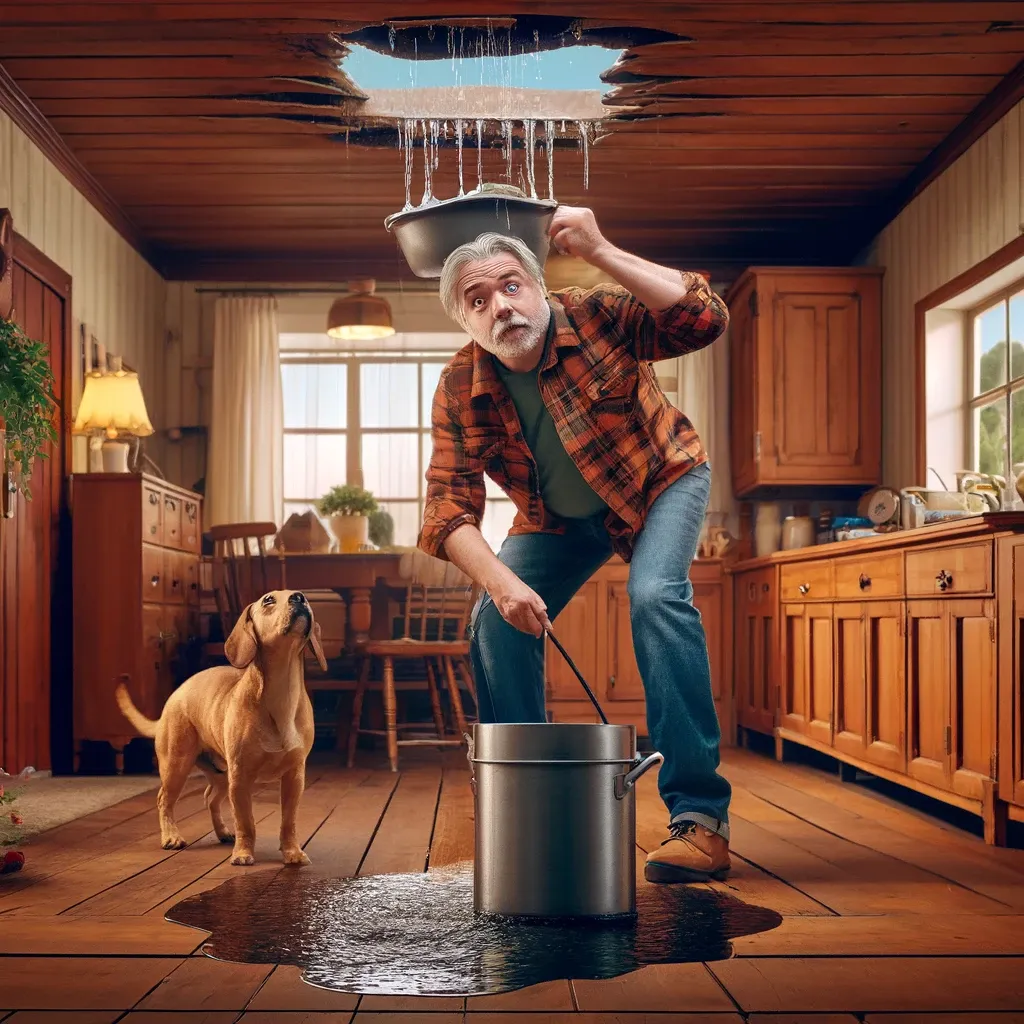
Maintenance and repairs
Performing regular maintenance and addressing repairs promptly can significantly reduce the chances of a roof leak. This includes tasks such as replacing damaged shingles, sealing gaps and cracks, and reinforcing flashing. By keeping your roof in good condition, you can prevent small issues from developing into more significant problems.
Cleaning gutters
Proper gutter maintenance is essential for preventing water buildup and subsequent roof leaks. Regularly clean your gutters and remove any debris that may obstruct the flow of water. Additionally, ensure that your downspouts are directing water away from your foundation to prevent water seepage. By keeping your gutters clean and functioning properly, you can minimize the risk of leaks caused by clogged or overflowing gutters.
Addressing nearby tree issues
If you have trees near your home, it's crucial to address any potential issues they may pose to your roof. Overhanging branches can scrape and damage your roof, while falling branches can cause severe damage during storms.
Regularly trim back branches that are in close proximity to your roof to prevent them from damaging the roofing materials. Additionally, consider removing any trees that pose a significant risk to your home to avoid potential roof leaks.
Roof Leak Emergency Situations
Safety precautions
In emergency situations where a roof leak is causing immediate and severe damage, it's important to prioritize your safety. Ensure that you and your family are safely away from the affected area. Switch off any electrical sources if there is a risk of water coming into contact with live wires. Don't attempt any temporary fixes unless you're confident in your ability to do so safely. Instead, contact a professional roofer immediately to assess the situation and provide the necessary assistance.
Temporary evacuation
In extreme cases where the roof leak poses an immediate threat to your safety or the structural integrity of your home, temporary evacuation may be necessary. If the safety of you and your family is at risk, it's essential to find alternative accommodation until the leak is repaired. Stay in touch with professionals who can assist you in navigating the temporary evacuation process and ensure that you have a safe place to stay.
Seeking Expert Advice
Consulting a professional roofer
When dealing with a roof leak, it's best to consult a professional roofer who can provide expert advice and guidance. They have the knowledge and experience to assess the extent of the damage, determine the cause of the leak, and recommend the most suitable solutions. Hiring a professional will ensure that the issue is addressed correctly and minimize the risk of further damage or future leaks.
Getting multiple opinions
If you're unsure about the advice or recommendations provided by a single roofer, it's always a good idea to seek multiple opinions. Obtaining different perspectives can help you make a well-informed decision and ensure that you're taking the most appropriate course of action for your specific situation. Just be sure to consult reputable and qualified professionals to ensure accurate assessments and reliable advice.
Insurance and Roof Leaks
Determining coverage
When it comes to insurance coverage for roof leaks, it can vary depending on your policy and specific circumstances. Review your homeowner's insurance policy to understand what is covered and what is excluded regarding roof leaks. Some policies may cover certain types of damage, such as leaks caused by storms, while others may require additional coverage for roof-related issues. Contact your insurance provider if you are unsure about your coverage or if you have any questions or concerns.
Filing a claim
In the event of a roof leak that requires repairs or replacement, it's essential to file an insurance claim promptly. Contact your insurance provider and provide them with all the necessary documentation, such as photos of the damage and any estimates or reports from professional roofers.
Be prepared to answer any questions or provide additional information they may require. Working closely with your insurance company will help ensure a smooth claims process and maximize the amount of coverage you receive.
Addressing roof leaks promptly is crucial for protecting your home, your health, and your wallet. While some leaks may stop on their own, it's not worth the risk of waiting for that to happen.
By understanding the common causes and signs of roof leaks, you can take proactive measures to prevent them from occurring. In the event of a leak, temporary fixes can provide temporary relief, but it's always best to consult a professional to address the underlying problem.
Regular roof maintenance, inspections, and timely repairs can help prevent leaks and prolong the lifespan of your roof. Remember, seeking expert advice and understanding your insurance coverage can also provide assistance when dealing with roof leaks. So, don't let a leak rain on your parade - take action and protect your home!

